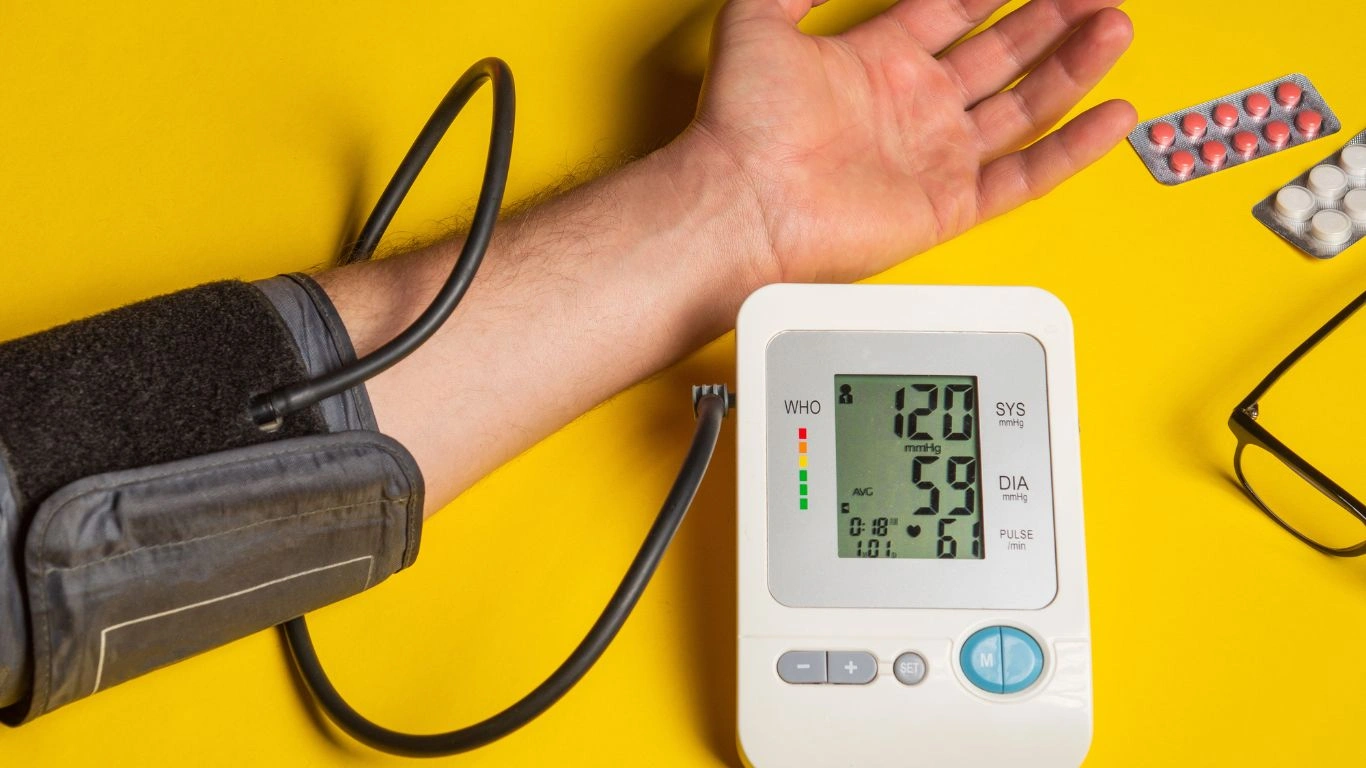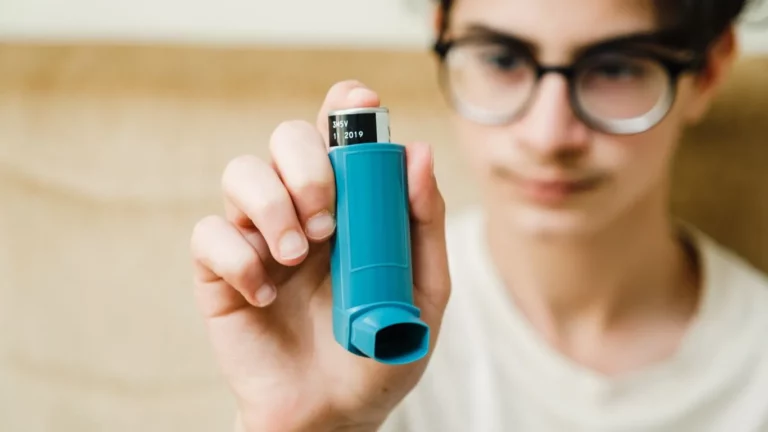Can Lemon Balm Tea Reduce Blood Pressure? Discover the Soothing Truth
Can lemon balm tea reduce blood pressure? That’s a question I’ve been asked more times than I can count in my clinic. As an internal medicine physician who deals with hypertension management day in and day out, I’ve seen all sorts of natural remedies make their rounds—some with solid science backing them, others… not so much. But lemon balm tea? That one’s been gaining traction lately, and honestly, it piqued my interest enough to dig into both the research and what I’ve seen firsthand with patients.
What Exactly Is Lemon Balm Tea?

Lemon balm (Melissa officinalis) is a lemon-scented herb in the mint family. You might’ve walked right past it at a farmer’s market or seen it as a decorative herb in someone’s backyard without realizing it has some serious potential when it comes to calming the nervous system. When brewed as a tea, it has a mild citrusy-mint flavor—honestly quite pleasant—and is traditionally used for anxiety, sleep, and digestive complaints.
But more recently, it’s been the subject of interest in the world of natural blood pressure management. So, does it actually move the needle? Or is it just another wellness trend with more hype than help?
How Lemon Balm Tea May Influence Blood Pressure

The Calming Connection: Stress and Blood Pressure
Let’s start with the most obvious mechanism. One of the biggest culprits in elevated blood pressure is chronic stress. We know that stress activates the sympathetic nervous system, triggering the release of cortisol and adrenaline, which then tightens blood vessels and increases heart rate. Over time, that pressure starts to build—literally.
This is where lemon balm’s calming properties may play a role. Studies suggest that lemon balm has a mild anxiolytic effect—meaning it can help reduce feelings of anxiety and promote relaxation. If you’ve ever felt that post-tea calm wash over you after a long day, you know what I mean.
By activating the parasympathetic (“rest and digest”) nervous system, lemon balm tea may indirectly support lower blood pressure levels. It’s not magic, but it might help you manage the mental and physical stress load that contributes to hypertension.
Direct Effects on Vascular Health?
Beyond its anti-anxiety perks, some early research points to lemon balm’s antioxidant and anti-inflammatory properties. There’s also data suggesting it may act as a mild vasodilator, helping blood vessels relax and widen slightly, which can contribute to lower resistance and improved circulation.
- Antioxidants: Help reduce oxidative stress, a known contributor to blood vessel damage and hypertension.
- Vasodilation: Compounds in lemon balm may influence nitric oxide pathways, allowing blood vessels to relax.
- Anti-inflammatory effects: Inflammation plays a key role in cardiovascular risk. Reducing it can help indirectly support blood pressure control.
Now, before we all start handing out lemon balm like it’s a prescription drug, I have to stress: these effects are often mild and usually work best when combined with other healthy habits like a good diet, movement, and sleep.
My Clinical Observations with Patients

In clinic, I’ve had several patients incorporate lemon balm tea as part of their broader lifestyle changes. One woman in her late 50s who struggled with “white coat hypertension” (blood pressure that spikes in clinical settings) reported that drinking lemon balm tea in the evenings helped her wind down and lowered her home BP readings by 5–10 mmHg over a few months. Was it the tea alone? Probably not. But it seemed to help her build a calming evening routine—and sometimes that’s half the battle.
Another patient, a younger man with borderline hypertension and a high-stress job, swapped out his second coffee of the day with lemon balm tea. His blood pressure dipped slightly, and he reported sleeping better too. Again, it wasn’t a cure-all, but it became a healthy part of his self-care ritual that supported the rest of his efforts.
- Lifestyle integration matters. Lemon balm tea works best as part of a broader, intentional strategy.
- Consistency is key. Drinking it once in a while won’t do much. Regular use—2–3 cups a day—seems to show the most promise.
- Individual response varies. Not everyone sees the same effect. Some notice a drop, others just enjoy the taste and ritual.
I always remind patients that while it’s tempting to chase down a miracle plant, real hypertension management is about the long game: good food, regular activity, stress management, and yes, sometimes meds. But if something like lemon balm tea can help you stick with that routine, I say lean into it.
When and How to Drink Lemon Balm Tea for Maximum Benefit

So you’re probably wondering—when should you drink lemon balm tea if your goal is better blood pressure control? Based on both the research and what I’ve seen with patients over the years, timing and consistency can make a big difference. The calming nature of lemon balm makes it ideal for later in the day. I often recommend having a cup in the late afternoon or evening, especially if stress or poor sleep is part of your hypertension story (which it is for most of us, let’s be honest).
Personally, I’ve found sipping a warm mug after dinner—maybe an hour before bed—helps ease me into a more restful sleep. That wind-down period is crucial, and if a gentle tea helps cue the body to slow down? That’s a win in my book.
- Evening Routine: Try replacing that post-dinner dessert or wine with lemon balm tea for a blood pressure-friendly habit.
- Midday Reset: If your job is high-pressure (hello, healthcare workers, office warriors, and busy parents), sneaking in a cup around 2–3 p.m. can give your nervous system a needed break.
- Before BP Monitoring: If anxiety skews your home BP readings, try a calming cup 30 minutes before to see if it stabilizes your numbers.
And don’t worry—lemon balm tea is caffeine-free, so it won’t interfere with sleep. In fact, it might just help deepen it, which is a bonus considering how restorative sleep plays a huge role in overall cardiovascular health.
What to Look for When Buying Lemon Balm Tea

One thing I tell my patients: not all teas are created equal. You want a lemon balm tea that’s pure, ideally organic, and minimally processed. Some brands throw in other herbs like chamomile or valerian, which may be helpful but can also affect how your body reacts—especially if you’re taking medications.
I usually suggest looking at the ingredient list closely. If “Melissa officinalis” (the botanical name) is the only thing listed, you’re on the right track. Bonus points if the tea smells fresh and lemony when you open the bag—that’s a good sign of quality.
- Loose-leaf vs. tea bags: Loose-leaf often has better potency, but bags are easier for on-the-go use. Pick what fits your lifestyle.
- Organic sourcing: Avoid added pesticides or contaminants by choosing organic-certified brands when possible.
- No added sweeteners: Watch out for pre-sweetened blends that can add unnecessary sugars—especially if you’re watching your metabolic health.
I’ve had some patients even grow lemon balm at home. It’s low-maintenance and grows like a weed (in a good way!). Fresh lemon balm can be steeped just like dried leaves—simply use more of it, since fresh herbs are less concentrated.
Can Lemon Balm Tea Interact with Medications?

This is the part where my physician hat stays firmly on. While lemon balm tea is generally considered safe, it’s still a bioactive herb—which means, yes, it can potentially interact with medications. If you’re on antihypertensives, sedatives, or thyroid medication, it’s worth having a quick chat with your doctor before diving in.
Why? Because some of lemon balm’s calming effects might enhance the effects of other medications—especially those that already lower blood pressure or cause drowsiness. In a handful of cases, this might lead to slightly too low BP, fatigue, or dizziness.
Here’s what I usually go over with my patients:
- Beta blockers or ACE inhibitors: Combining with lemon balm could amplify hypotensive effects. Monitor BP closely.
- Thyroid medications: There’s some data suggesting lemon balm may mildly inhibit thyroid activity in sensitive individuals—especially those with hypothyroidism.
- Anti-anxiety meds or sleep aids: Could increase sedation. Be cautious with combo use.
That said, most people don’t experience issues, especially with moderate use (1–2 cups a day). Still, I always lean on the side of safety. If you’re taking multiple medications or have complex conditions, looping in your primary care doc or pharmacist is a smart move.
So… Is It Worth Trying?
Honestly? If you’re someone dealing with mild to moderate hypertension, especially stress-related spikes, I think there’s real potential in adding lemon balm tea to your routine. It’s gentle, easy to prepare, and carries virtually no downside when used responsibly. Is it going to replace medication for everyone? No. But could it help support relaxation and create a meaningful daily ritual? Definitely.
In my experience, when patients feel empowered to take small, manageable steps in their own care, they stick with their treatment plans longer. A warm cup of lemon balm tea might be just that—a small act of self-care that supports your heart in the long run.
What the Research Says About Lemon Balm and Blood Pressure

So, we’ve chatted about how lemon balm tea might help with stress and possibly lower blood pressure. But what’s the science behind it? Is there solid research to back up these claims?
Actually, yes. A notable study published in Phytotherapy Research conducted a double-blind, randomized crossover trial with 49 patients diagnosed with essential hypertension. Participants received 400 mg of Melissa officinalis (lemon balm) three times daily for four weeks. The results were promising: both systolic and diastolic blood pressures significantly decreased compared to the placebo group. For instance, systolic pressure dropped from approximately 152 mmHg to 130 mmHg, and diastolic from 95 mmHg to 80 mmHg. Importantly, no significant side effects were observed during the study. [Source]
Another meta-analysis encompassing five randomized controlled trials with a total of 302 patients found that lemon balm consumption significantly reduced total cholesterol, triglycerides, and LDL levels. While the primary focus wasn’t blood pressure, these improvements in lipid profiles are beneficial for overall cardiovascular health. [Source]
These studies suggest that lemon balm isn’t just a calming herb; it may have tangible benefits for heart health, including blood pressure management.
Integrating Lemon Balm Tea into Your Daily Routine

Now, let’s talk about how to make lemon balm tea a part of your daily life. It’s not just about brewing a cup; it’s about creating a ritual that supports your health.
Brewing the Perfect Cup
Here’s a simple method:
- Ingredients: 1 teaspoon of dried lemon balm leaves or 1 tablespoon of fresh leaves
- Water: 1 cup (about 240 ml) of hot water, just below boiling
- Steeping Time: 5-10 minutes, depending on desired strength
Feel free to add a slice of lemon or a bit of honey for flavor. Remember, the key is consistency. Drinking 1-2 cups daily can be more beneficial than occasional consumption.
Creating a Relaxing Routine
Consider integrating lemon balm tea into your evening routine. For example:
- Prepare your tea about an hour before bedtime.
- Find a quiet space to relax, perhaps with a book or soft music.
- Sip slowly, focusing on the warmth and aroma.
This practice not only helps with stress reduction but also signals your body that it’s time to wind down, potentially improving sleep quality.
Precautions and Considerations
While lemon balm is generally safe for most people, there are a few considerations:
- Medication Interactions: Lemon balm may interact with thyroid medications and sedatives. If you’re on such medications, consult your healthcare provider before adding lemon balm to your regimen.
- Pregnancy and Breastfeeding: There’s limited research on lemon balm’s safety during pregnancy and breastfeeding. It’s best to err on the side of caution and consult a healthcare professional.
- Allergies: If you’re allergic to plants in the mint family, exercise caution, as lemon balm is a member of this family.
Always listen to your body. If you experience any adverse reactions, discontinue use and consult a healthcare provider.
Final Thoughts
Incorporating lemon balm tea into your daily routine can be a delightful and potentially beneficial practice for managing blood pressure and enhancing overall well-being. It’s a gentle, natural approach that complements other healthy lifestyle choices.
Remember, while lemon balm tea can be a helpful addition, it’s not a substitute for medical treatment. Always consult with your healthcare provider for personalized advice, especially if you have existing health conditions or are on medication.
References
- Effect of Melissa officinalis on systolic and diastolic blood pressures in essential hypertension: A double-blind crossover clinical trial
- Effects of Melissa officinalis (lemon balm) consumption on serum lipid profile: A meta-analysis
Disclaimer
This article is for informational purposes only and does not constitute medical advice. Always consult with a qualified healthcare provider before making changes to your health regimen, especially if you have existing medical conditions or are taking medications.

Dr. Gwenna Aazee is a board-certified Internal Medicine Physician with a special focus on hypertension management, chronic disease prevention, and patient education. With years of experience in both clinical practice and medical writing, she’s passionate about turning evidence-based medicine into accessible, actionable advice. Through her work at Healthusias.com, Dr. Aazee empowers readers to take charge of their health with confidence and clarity. Off the clock, she enjoys deep dives into nutrition research, long walks with her rescue pup, and simplifying medical jargon one article at a time.







